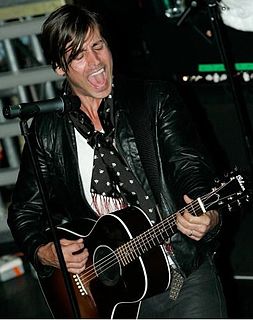A Quote by Mimi Chakraborty
My parents say I bond with kids very well, but I am always fighting with them. I don't know how to handle them.
Related Quotes
Living in a place like Pakistan, very often you meet people who are migrating abroad. And sometimes you'll ask their parents, you know - you didn't try to stop them? Like, why didn't you say, don't go - I'll miss you? Stay with me. And, you know, people say, well, it's best for them. They have to go. And parents, you know, take on that sadness because they know it's better for their children if they leave.
Somebody saying something offensive to you, or insulting to you, is not pleasant, but it's part of life. And my belief is we need to shore ourselves up, and our kids up and our younger generation up to understand how to deal with that unpleasant reality, because we won't always be there to protect them. And you know, I for one want my own kids to know how to handle that.
My wife and I are just praying daily for our kids. We are trying to raise our kids to go all in for God. But I am keenly aware of this fact: If I hope to see my kids live an "all in" life for God, they must first see me doing it. My wife and I know that leading by example is going to be the loudest voice of influence in their lives. I've stopped trying to be a perfect parent, and instead I'm realizing that my kids aren't expecting me to be perfect, but they do need me to be present, focused on them, always making sure how much they know how much I love them and how much Jesus loves them.
If your kids remember anything, it's the fact that you were there. You're gonna fail every day, you're gonna make mistakes, you're gonna do things wrong, but as long as you're there, they remember that. And I see that. Our kids are so young, but they know that we're at every basketball game. We take them with us to places, we engage them. It's not helicopter parenting we just keep them around us. It's that bond. If you lose that it's hard to get it back. I think by showing up, kids, they're always connected to you.
I spent a lot of time in boarding school. This is something I will never do to my kids. I think if you're having kids, then you have to take care of them; otherwise, what's the point? There are many things that parents say are good for the kids, but the truth is they say that because it is good for the parents.
--Why are we fighting them? --They're mad. We're sane. --How do we know? --That we're sane? --Yes. --Am I sane? --To all appearances. --And you, do you consider yourself sane? --I do. --Well, there you have it. --But don't they also consider themselves sane? --I think they know. Deep down. That they're not sane. --How must that make them feel? --Terrible, I should think. They must fight ever more fiercely, in order to deny what they know to be true. That they are not sane.
We're good at taking care of little kids, and spend a lot of energy teaching them things like how to read. But when kids get as tall as their parents and can look them in the eyes, we tend to drop the ball - at a time they most need a loving consistent community of adults, be it parents, aunts, uncles, or others.
French parents are very concerned about their kids. They know about pedophiles, allergies, and choking hazards. They take reasonable precautions. But they aren't panicked about their children's well-being. This calmer outlook makes them better at both establishing boundaries and giving their kids some autonomy.
There’s a belief now that the problem with our schools is parents, that if we just had better parents we would have better performing kids and, therefore, we wouldn’t have a problem at all. But what’s missing in that equation is that you do have a lot of parents in this country who are very involved in their children’s education and who do want something better. They want to see better for their kids. They know that they’re in schools that aren’t performing particularly well and if you look at how we treat those parents, it is quite poorly.

































